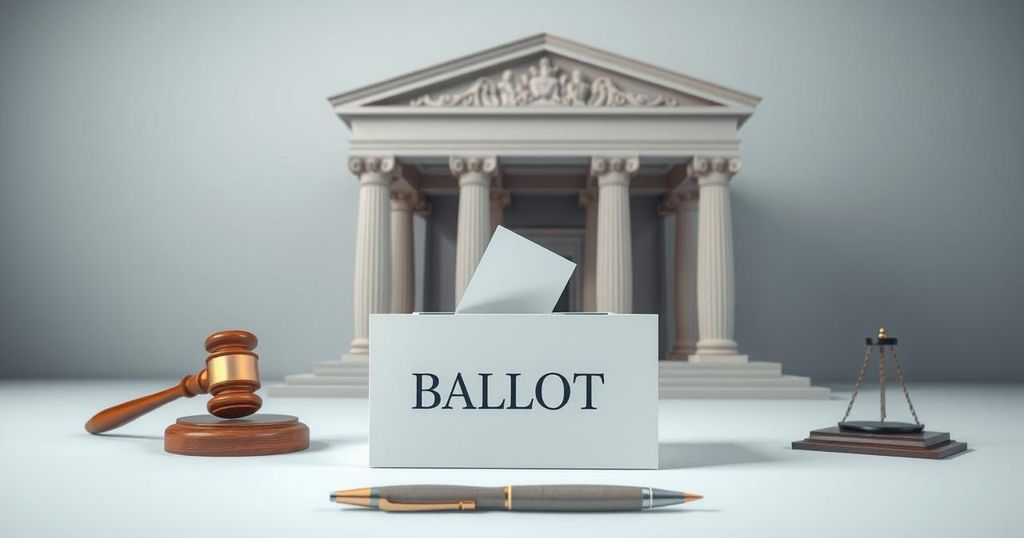Togo Conducts First Senatorial Elections Amidst Opposition Protests
Togo held its first-ever senatorial elections amidst protests from opposition factions. President Faure Gnassingbe’s reforms, which transition the governmental structure from direct presidential elections to a parliamentary system, have been labeled as a constitutional coup. Many opposition parties boycotted the vote, while supporters argue for improved representation.
On Saturday, Togo conducted its inaugural senatorial elections, prompted by concerns regarding President Faure Gnassingbe’s intentions to maintain power indefinitely through constitutional changes. Opposition factions have threatened to boycott the vote, while civil society organizations have criticized the reform as predetermined and illegitimate.
The revised constitution transitions Togo from a direct presidential election system to a parliamentary structure, relegating the presidential role to a symbolic one. Key powers will shift to the President of the Council of Ministers, currently held by Gnassingbe, who has ruled since 2005 following his father’s lengthy tenure.
Previously, Gnassingbe was restricted to one final presidential term due to the old constitution, which stipulated an upcoming election. The elections will involve over 1,500 municipal councilors and 179 regional councilors casting votes for 41 of the 61 new senators, with the remainder appointed by the president.
Vimenyo Koffi, a municipal councilor, noted, “It’s a new constitution that we have never tested. We had to test it to see the sides that are not good and to appreciate the rest.” Meanwhile, the Alliance of Democrats for Integral Development (ADDI) has confirmed its participation, whereas other factions like the National Alliance for Change (ANC) and the Democratic Forces for the Republic (FDR) have declared they will stand aside, labeling the process a “constitutional coup d’etat.”
The ANC denounced the voting process as anti-democratic, asserting it aims to solidify an unlawful regime. FDR referred to the elections as a “parody” and expressed concern about the financial implications of the Senate amid pressing local needs. Supporters of the president argue that these constitutional modifications enhance representation within the governance structure.
Gnassingbe’s party, the Union for the Republic, recently achieved a significant victory in the legislative elections, which opponents branded as an “electoral hold-up” rife with allegations of widespread fraud.
The first senatorial elections in Togo, impacted by constitutional reforms and opposition dissent, signal a critical juncture in the country’s governance. While the changes aim to reshape political representation, significant opposition remains regarding their legitimacy and implications for democracy. The political landscape appears tense as factions strategize amidst these developments.
Original Source: www.arabnews.com




Post Comment